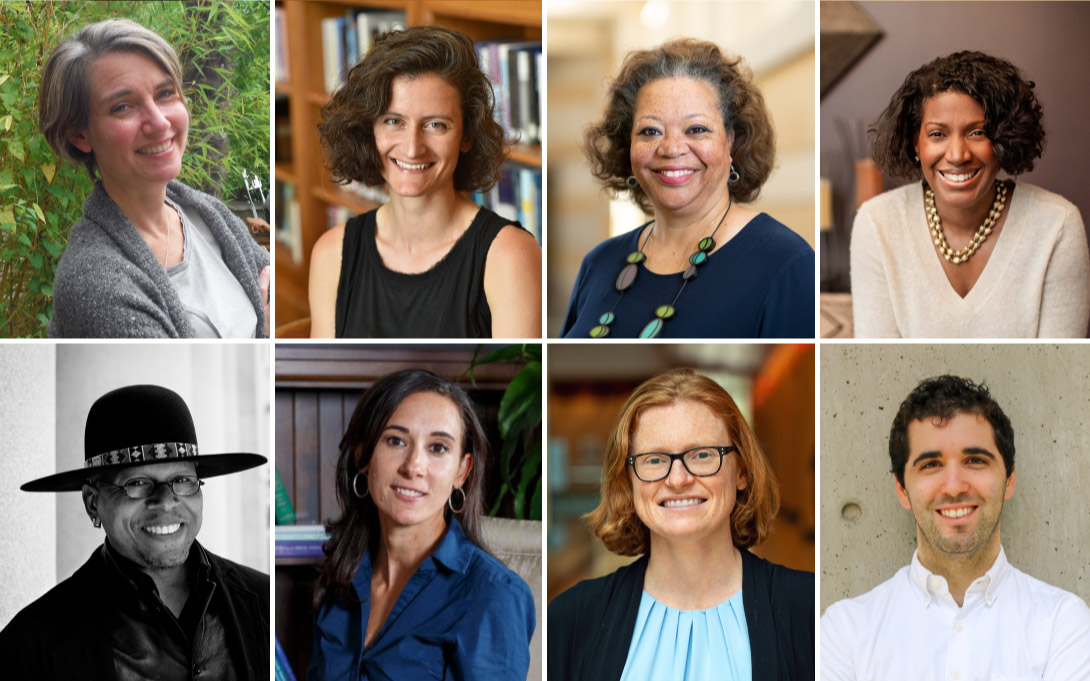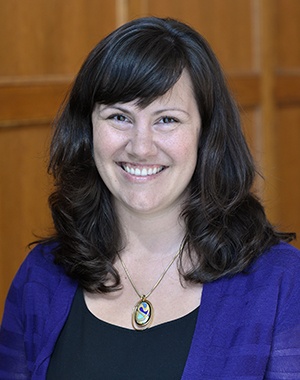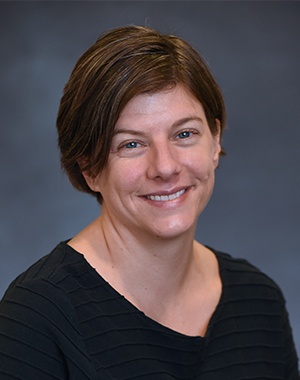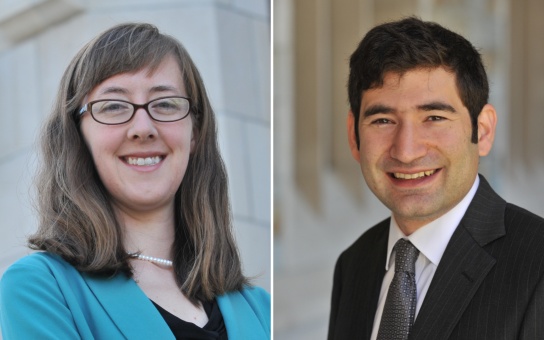
Javed Ali organized a panel for New America on domestic terrorism. His new podcast, The Burn Bag, produced with two Ford School alumni, A'ndre Gonawela (BA ‘19) and Ryan Rosenthal (BA ‘19), has featured U.S. Senator Maggie Hassan, General David Paetreus, General Kenneth McKenzie, and others.
In an article for the Jama Health Forum, John Ayanian highlighted how the forum quickly pivoted to cover the COVID-19 threat and became a valued health policy resource.
Michael S. Barr and Adrienne Harris posted a working paper “Building the Payment System of the Future: How Central Banks Can Improve Payments to Enhance Financial Inclusion” to SSRN as part of their Central Bank of the Future Project. Michael also joined the Board of Trustees of the Kresge Foundation, and co-authored a supplement to his 2018 textbook on financial regulation titled, “The Financial Response to the COVID-19 Pandemic.”
John Ciorciari published “Sharing Sovereignty in the Streets” in International Peacekeeping; the article explores the effectiveness of international policing in war-torn countries.
Leading a team of students, John Chamberlin helped the State of Michigan define ‘communities of interest’ to inform legislative redistricting for the Independent Citizens Redistricting Commission.
Susan M. Collins was appointed as the University of Michigan’s provost and executive vice president for academic affairs.
Christian Davenport presented on “State Security Forces and Citizen Security” in a roundtable discussion hosted by the Triangle Institute for Security Studies.
Kathryn Dominguez discussed the consequences of the pandemic on the U.S. economy and potential restorative policies at a colloquium held by the National Academies of Sciences.
In May, Susan Dynarski and H. Luke Shaefer were each awarded prestigious Carnegie Fellowships for their high-caliber scholarly research that addresses important and enduring issues confronting society.
Jennifer Erb-Downward will lead the development of an “Education Leads Home Data-to-Action Playbook” to offer states guidance on student homelessness.
Edie Goldenberg delivered the plenary talk at the 2020 American Political Science Association's Teaching and Learning Conference. She urged political scientists to combine theory and practice to promote deeper understanding of democratic principles and values.
Rick Hall won the prestigious American Political Science Association's 2020 Barbara Sinclair Award, in recognition of his contributions to understanding legislative politics.
Robert Hampshire secured a National Science Foundation RAPID grant to address food insecurity in Detroit.
Adrienne Harris shared with Vice News how the Coronavirus pandemic has exacerbated a coin shortage in the U.S., and how the shortage disproportionately impacts low-income consumers.
Catherine Hausman co-authored “Are Energy Executives Rewarded for Luck?” in The Energy Journal.
Brian Jacob co-authored “How Does an Accountability Program that Targets Achievement Gaps Affect Student Performance” in the Education Finance and Policy journal. Jacob is also PI for two new projects: a Jameel Abdul Latif Poverty Action Lab-funded pilot on how to best serve children at risk of entering foster care, and a U.S. Department of Education Institute of Educational Sciences project to explore the role of career and technical education for educational and economic success.
Paula Lantz was the lead writer of an Amicus Curiae brief supporting Michigan Governor Whitmer’s use of emergency powers in response to COVID-19. She was also named to the editorial advisory board for the Milbank Quarterly, a leading health policy journal.
John Leahy co-authored an article, “Rational Inattention, Competitive Supply, and Psychometrics” in the April 2020 Quarterly Journal of Economics.
Stephanie Leiser led a team of collaborating organizations in Michigan to create a COVID-19 Fiscal Strategy Guide, which helps local governments address the effects of the crisis.
Ann Lin and Stephanie Leiser were named inaugural recipients of the Public Engagement Faculty Fellowship by the U-M Center for Academic Innovation.
Dan Little authored A New Social Ontology of Government: Consent, Coordination, and Authority as part of Palgrave Macmillan’s Foundations of Government and Public Administration series.
Jeffrey Morenoff and Elisabeth Gerber have mobilized four rapid response COVID-19 DMACS surveys since March to track the impacts of COVID-19 on Detroit residents, including health behaviors, employment, and COVID-19 testing.
Yusuf Neggers is co-leading a new project, “Is Heading Home a Dead End? COVID-Induced Migration and Local Labor Market Opportunities in Rural India,” funded by the Growth and Labour Markets in Low Income Countries Programme and the Abdul Latif Jameel Poverty Action Lab.

Shobita Parthasarathy’s research to compare the development, implementation, and governance of COVID-19 diagnostic testing in the U.S., the U.K., Singapore, and South Korea was funded by a National Science Foundation Rapid Response Research grant. Her opinion piece "More testing alone will not get us out of this pandemic" appeared in Nature magazine.
Natasha Pilkauskas published two articles: “Historical trends in children living in multigenerational households in the United States: 1870-2018” in Demography, and “Fathering among non-resident dads: Does paternity leave matter?” in the Journal of Marriage and Family.
Barry Rabe co-authored a new book Trump, the Administrative Presidency, and Federalism, (Brookings Institution Press, 2020) that analyzes the Administration's use of executive power to reverse environmental protections and advance goals the book argues are not supported by Congress—and how states have worked to undercut those administrative actions.
Kaitlin Raimi’s research evaluating the public perception and potential politicization of EPA Science Advisory Boards was published in Risk Analysis and in Proceedings of the National Academy of Sciences.
Joy Rohde was selected as a 2020-2021 scholar at the Institute for Advanced Study at Princeton University, where she will work on her book that explores the history of big data policy interventions in the years after World War II.

In September, Molly Spencer’s second poetry collection, Hinge, was published by the Southern Illinois University Press. The volume was co-winner of the 2019 Crab Orchard Series in Poetry Open Competition.
Betsey Stevenson testified in September on the consequences of COVID-19 fiscal inaction at a House Ways and Means Committee hearing, and in October to the CBO Panel of Economic Advisers. She also published an essay on The Initial Impact of COVID-19 on Labor Market Outcomes Across Groups and the Potential for Permanent Scarring through the Brookings Institution’s Hamilton Project. Betsey and Justin Wolfers launched a new podcast, Think Like An Economist.
In August, David Thacher’s paper, “The Learning Model of Use-of-Force Reviews,” was published in Law & Social Inquiry. Thacher contends that police departments should learn from “use-of-force reviews” to become more transparent and restrained.
Megan Tompkins-Stange served as Program Chair and Executive Committee member for the Educational Policy and Politics Division of the American Educational Research Association. She provided public commentary on the effects of billionaire philanthropy on COVID-19 and on the election.
Celeste Watkins-Hayes was named as the Jean E. Fairfax Collegiate Professor of Public Policy at the Ford School and as a University Diversity and Social Transformation Professor. Her book, Remaking a Life: How Women Living with HIV/AIDS Confront Inequality, was named co-winner of the 2020 American Sociological Association's (ASA) Sociology of Sex and Gender Distinguished Book Award and winner of the Eliot Freidson Outstanding Publication Award from the ASA’s Medical Sociology Section.
Education Policy Initiative co-directors Christina Weiland and Susan Dynarski received a renewed 5-year, $4.6 million grant from the U.S. Department of Education to support the EPI’s Training Program in Causal Inference in Education Policy Research.
Dean Yang co-authored “Taken by Storm: Hurricanes, Migrant Networks, and U.S. Immigration” in the American Economic Journal and also published the first report from research that assesses individuals' COVID-19 knowledge, beliefs, and behaviors, and the pandemic’s economic impact in Mozambique. Yang also received grants to test informational interventions that promote protective COVID-19 behaviors in a sub-Saharan African context.

Congratulations
In May, the U-M Regents approved the promotions of both Catherine Hausman and Joshua Hausman to associate professor of public policy with tenure.
Welcome
Eight new faculty expand expertise in areas such as political attitudes and the media, diplomacy and international relations, race and social policy, international political conflict, education, and policy impacts of data science: Jenna Bednar, Charlotte Cavaille, Christian Davenport, Ben Green, Mara Ostfeld, Ambassador Susan D. Page, Celeste Watkins-Hayes, and Christina Weiland.
Below, find the full, formatted Fall 2020 edition of State & Hill.
